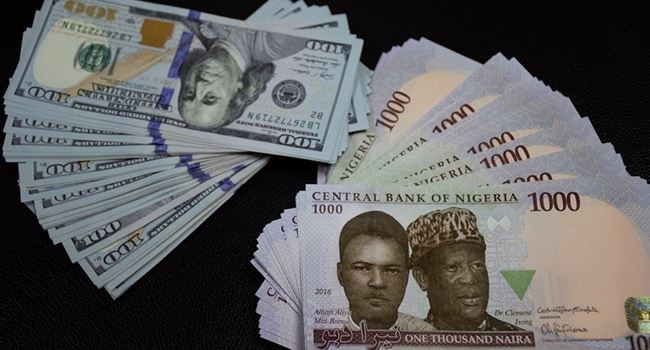Unraveling the Dynamics of Dollar Exchange Rates to Naira in the Black Market

In the realm of global currencies, the exchange rate between the United States Dollar (USD) and the Nigerian Naira (NGN) holds a significant position. While official exchange rates are determined by governments and central banks, the black market, often referred to as the parallel market, plays a crucial role in shaping the actual dynamics of currency exchange in Nigeria. This article delves into the complex world of the dollar exchange rate to Naira in the black market, exploring the factors influencing it, the impact on the economy, and potential avenues for improvement.
Historical Perspective:
To comprehend the present state of the dollar to Naira exchange rate in the black market, it is essential to glance back at the historical context. Nigeria, like many other nations, has faced challenges related to currency devaluation, economic instability, and external pressures. The black market has evolved as an alternative exchange platform, where supply and demand forces dictate the rates, often deviating from official figures.
Factors Influencing Exchange Rates:
Several factors contribute to the volatility and fluctuations witnessed in the dollar to Naira exchange rate within the black market:
- Economic Indicators: Economic indicators such as inflation rates, unemployment figures, and GDP growth play a pivotal role. A struggling economy can lead to a weakened currency, making it susceptible to depreciation against stronger foreign currencies like the USD.
- Political Stability: Political stability is a key determinant. Political uncertainties, governance issues, and policy inconsistencies can erode investor confidence, resulting in a decline in the value of the local currency.
- Foreign Exchange Reserves: The level of a country’s foreign exchange reserves directly impacts its ability to stabilize its currency. If reserves are low, there may be increased reliance on external aid or borrowing, which can negatively affect the exchange rate.
- Trade Balances: A nation’s trade balance, indicating the difference between exports and imports, has a substantial impact. A persistent trade deficit may lead to a higher demand for foreign currency, contributing to a weaker local currency.
- Speculation: Speculative activities in the foreign exchange market, driven by traders anticipating future currency movements, can lead to short-term fluctuations. In the black market, where regulations are less stringent, speculation can exacerbate volatility.
Impact on the Economy:
The black market exchange rate has significant implications for the Nigerian economy:
- Inflationary Pressures: A depreciating Naira can contribute to inflationary pressures as the cost of imported goods rises. This, in turn, affects the purchasing power of consumers and can lead to economic hardships.
- Business Uncertainty: Businesses, especially those heavily reliant on imports, face uncertainty due to exchange rate fluctuations. Planning and budgeting become challenging, affecting investment decisions and operational stability.
- Foreign Investment: The perception of a stable exchange rate is crucial for attracting foreign investment. A volatile black market can deter potential investors, hindering economic growth and development.
- Government Fiscal Policies: The government is often compelled to implement fiscal policies to address exchange rate challenges. These policies, including currency interventions, can have broader implications on the overall economy.
Potential Solutions:
Addressing the challenges associated with the dollar to Naira exchange rate in the black market requires a multifaceted approach:
- Strengthening Economic Fundamentals: Enhancing economic fundamentals, including reducing inflation, maintaining political stability, and implementing sound fiscal policies, can contribute to a more stable exchange rate.
- Diversification of the Economy: Overdependence on oil exports has been a longstanding issue for Nigeria. Diversifying the economy by promoting non-oil sectors can reduce vulnerability to global oil price fluctuations and enhance economic resilience.
- Enhanced Regulatory Measures: Strengthening regulatory measures in the foreign exchange market can help curb speculative activities. Improved monitoring and enforcement can mitigate excessive volatility.
- Encouraging Foreign Direct Investment (FDI): Policies that promote a conducive business environment and encourage foreign direct investment can boost foreign exchange reserves, providing a cushion against currency depreciation.
Conclusion:
The dollar to Naira exchange rate in the black market reflects the intricate interplay of economic, political, and global factors. Understanding these dynamics is crucial for policymakers, businesses, and the general populace. Efforts to stabilize the exchange rate and foster economic growth must involve a holistic approach, addressing both short-term challenges and long-term structural issues. As Nigeria navigates its economic landscape, a balanced and sustainable strategy will be key to achieving stability in the currency exchange market and fostering a resilient economy.
Q1: What is the black market exchange rate for the US Dollar to Nigerian Naira currently? A1: Exchange rates in the black market are highly volatile and can change rapidly. It is recommended to check reliable financial news sources or consult with authorized currency dealers for the most up-to-date rates.
Q2: Why does the black market exist, and how does it differ from the official exchange rate? A2: The black market exists due to factors such as currency controls, restrictions, and market demand. It operates outside official channels, and rates are determined by supply and demand forces, often deviating from the official exchange rate set by governments and central banks.
Q3: What factors influence the fluctuation of the dollar to Naira exchange rate in the black market? A3: Several factors contribute to the volatility, including economic indicators, political stability, foreign exchange reserves, trade balances, and speculative activities. These elements collectively influence the perceived value of the Naira against the US Dollar in the black market.
Q4: How does the black market exchange rate impact the Nigerian economy? A4: The black market exchange rate has significant implications, including inflationary pressures, business uncertainty, challenges for import-dependent businesses, and potential deterrence of foreign investment. It can also impact government fiscal policies as they try to stabilize the economy.
Q5: Can the government regulate or control the black market exchange rate? A5: While the government can implement measures to influence the exchange rate, regulating the black market entirely is challenging. The black market is often driven by factors beyond direct control, such as market demand, supply, and external economic conditions.
Q6: How can individuals and businesses protect themselves from the impact of a fluctuating exchange rate? A6: Individuals and businesses can consider strategies such as diversifying currency holdings, staying informed about market trends, hedging against currency risks, and working closely with financial advisors to navigate the impact of a fluctuating exchange rate.
Q7: Are there legal implications for engaging in currency transactions in the black market? A7: Engaging in currency transactions in the black market may violate legal regulations and attract penalties. It is advisable to conduct foreign exchange transactions through authorized dealers and financial institutions to ensure compliance with legal and regulatory frameworks.
Q8: How often do black market exchange rates deviate from the official rates? A8: Black market rates can deviate significantly from official rates depending on various factors. The extent of the deviation may vary, and it is influenced by market dynamics, economic conditions, and government policies.
Q9: Can the black market exchange rate be eliminated entirely? A9: Completely eliminating the black market exchange rate is challenging, as it is often a response to market demand and various economic factors. However, implementing effective economic policies and regulatory measures can help minimize its impact and bring more stability to the official exchange rate.
Q10: What long-term solutions are being considered to address exchange rate challenges in Nigeria? A10: Long-term solutions include strengthening economic fundamentals, diversifying the economy, enhancing regulatory measures, encouraging foreign direct investment, and fostering a business-friendly environment. These measures aim to create a more stable economic foundation and reduce the reliance on the black market.






